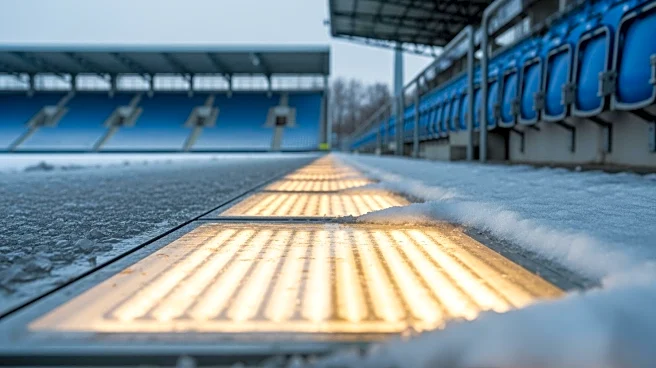What's Happening?
A report from Zillow indicates that apartment rents in Chicago are rising faster than in any other major metro area. Despite a stable population, demand for housing remains high, and construction is not
keeping pace. The Chicago metro area is issuing fewer housing permits compared to other cities, contributing to the surge in rental prices. The typical rental cost in Chicago has increased significantly, with renters needing to earn approximately $88,500 annually to afford typical rent comfortably.
Why It's Important?
The rising rental costs in Chicago highlight the challenges of housing affordability in urban areas. This trend affects a wide range of stakeholders, including renters, property owners, and city planners. The lack of new construction exacerbates the issue, potentially leading to increased financial strain on residents and impacting the city's attractiveness to new professionals and graduates.
What's Next?
Addressing the construction shortfall is crucial for stabilizing rental prices. City officials and developers may need to explore ways to streamline building regulations and zoning rules to encourage more residential development. The ongoing trend could influence migration patterns, with potential residents opting for cities with more affordable housing options.
Beyond the Headlines
The situation raises ethical questions about housing equity and the responsibility of city planners to ensure affordable living conditions. Long-term implications could include shifts in demographic patterns and changes in the city's economic landscape as affordability becomes a critical factor in urban planning.









